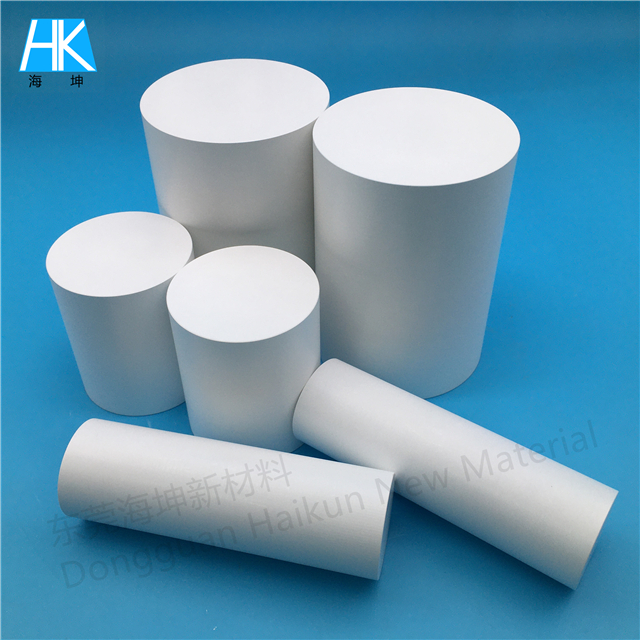Boron Nitride Ceramics: Properties, Preparation and Application Prospects
Boron Nitride (BN) ceramics are an advanced ceramic material with unique structure and excellent properties. Due to its high thermal conductivity, excellent electrical insulation, chemical stability and high temperature stability, boron nitride ceramics have shown broad application prospects in the fields of electronics, metallurgy, aerospace, etc. This paper reviews the structural characteristics, main properties, preparation process and application of boron nitride ceramics, and explores the future development direction.
E-mail:sales01@hkceramic.com

| Plate material mm (L, H, and W can be selected as needed, customization supported) | ||||||||||||
| L | 3 | 5 | 8 | 10 | 12 | 15 | 18 | 20 | 22 | 25 | 28 | More (Customizable) |
| W*H | 100*100 | 90*140 | 95*145 | 150*150 | 160*160 | 122*290 | 110*275 | More (Customizable) | ||||
| Rod material mm (W, Ø can be selected as needed, customization supported) | ||||||||||||
| Ø | 0.5 | 0.8 | 0.9 | 1 | 1.5 | 2 | 2.5 | 3 | 3.5 | 4 | 4.5 | More (Customizable) |
| W | 60 | 100 | 120 | 200 | More (Customizable) | |||||||
1. Structure and classification of boron nitride ceramics
Boron nitride has four main crystal structures:
Hexagonal boron nitride (h-BN): The structure is similar to graphite, known as “white graphite”, with layered arrangement and lubricity.Cubic boron nitride (c-BN): The hardness is second only to diamond, and it is a superhard material.Wurtzite boron nitride (w-BN): A metastable structure formed under high pressure.Rhombohedral boron nitride (r-BN): A less common variant.Among them, hexagonal boron nitride and cubic boron nitride are the two most widely studied and applied forms.
2. Performance characteristics of boron nitride ceramics
Boron nitride ceramics have the following excellent properties:
High temperature stability: The melting point is close to 3000°C and can be used for a long time at 1800°C.Thermal conductivity and insulation: High thermal conductivity (h-BN is about 30–60 W/m·K), and it is also an excellent electrical insulator.Chemical inertness: Resistant to acid, alkali and molten metal corrosion.
Lubricity: h-BN has a low friction coefficient (0.2–0.4) and can be used as a high-temperature lubricant.Low dielectric constant and loss: Suitable for high-frequency electronic devices.
3. Preparation process of boron nitride ceramics
3.1 Preparation of hexagonal boron nitride ceramics
Hot pressing sintering: sintering h-BN powder at high temperature (1700–2000°C) and pressure (10–40 MPa).Chemical vapor deposition (CVD): used to prepare high-purity h-BN films.Precursor conversion method: complex-shaped BN products are obtained by pyrolysis of boron-containing polymers.
3.2 Preparation of cubic boron nitride ceramics
High-pressure and high-temperature method (HPHT): h-BN is converted to c-BN at 5–6 GPa and 1500°C.Additive-assisted sintering: using AlN, TiN, etc. to promote c-BN densification.
4. Application fields
4.1 Electronic industry
Heat dissipation substrate (such as heat dissipation of 5G RF devices).
Semiconductor packaging materials.
4.2 High temperature field
Metal melting crucible, thermocouple protection tube.
Spacecraft thermal protection components.
4.3 Mechanical industry
Cutting tools (c-BN based composite materials).
Self-lubricating bearings (h-BN addition).
4.4 Emerging applications
Neutron absorbing materials (due to the high neutron cross section of boron).
Insulating substrates in quantum devices.
5. Challenges and Prospects
Despite the excellent performance of boron nitride ceramics, they still face the following problems:
High cost: high-purity raw materials and complex processes drive up prices.
Processing difficulty: h-BN ceramics are brittle and difficult to process precisely.
Performance optimization: How to balance thermal conductivity and mechanical strength still needs to be studied.
Future development directions include:
Develop low-cost large-scale preparation technology.
Study nano-boron nitride composite materials (such as BN/graphene).
Explore applications in nuclear energy and new energy fields.
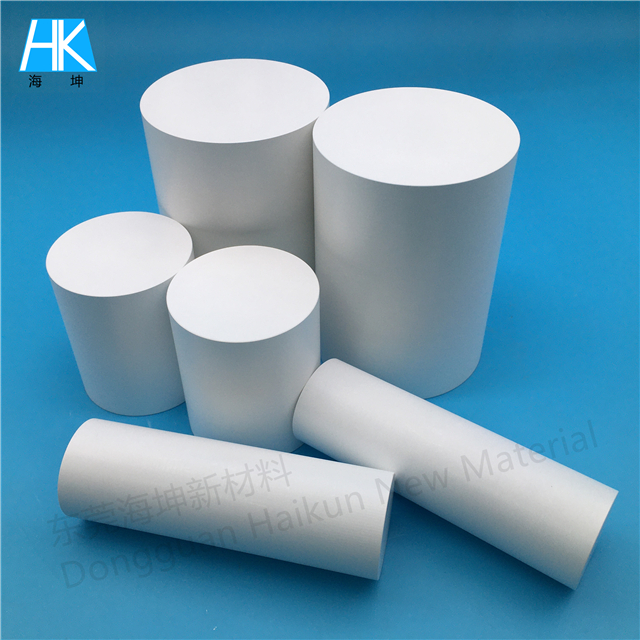
Conclusion: Boron nitride ceramics have become an irreplaceable material in the field of high-end technology due to their unique combination of properties. With the advancement of preparation technology and the deepening of interdisciplinary research, their application potential will be further released.
*For more details, please feel free to contact our company.
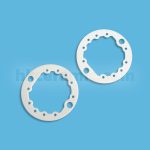
Porous alumina ceramic gasket
Material:Alumina ceramics
Describe:Custom porous alumina (Al2O3) ceramic gaskets, or laser-cut ceramic rings, feature precision-drilled holes and unique shapes for precise component positioning. Alumina ceramic's high hardness and strength maintain shape and performance in high-pressure, high-friction conditions, ensuring stable equipment operation and longevity.
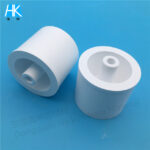
BN Boron Nitride Ceramic Structural Parts
Material:Boron Nitride Ceramics
Describe:Explore boron nitride ceramic tube sleeves with precise dimensions and smooth surfaces for machinery. Their high melting point and thermal shock stability ensure reliable performance in high temperatures, resisting cracking and deformation.
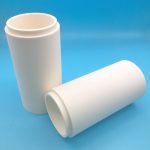
99% high alumina ceramic plunger tube
Material:Alumina ceramics
Describe:High alumina ceramic plunger tubes, sleeves, and precision ceramic products provide exceptional wear, corrosion, and high temperature resistance in chemical, mining, and power industries. They safeguard equipment from damage while conveying corrosive and high temperature fluids.
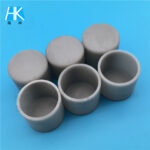
Aluminum Nitride Ceramic Crucible
Material:Aluminum Nitride Ceramics
Describe:Aluminum nitride (AlN) ceramic Crucible offer precise perforation for mechanical support, electrical insulation, and thermal management enhancement in precision applications.

Customized High Temperature Resistant Insulating Ceramic Bushings
Material:Alumina ceramics
Describe:Customized High Temperature Resistant Insulating Ceramic Bushings, also known as porous retaining rings, feature precise designs with drilled holes for secure connection. Their high hardness and strength ensure stability and durability under pressure, ideal for long-lasting equipment performance.
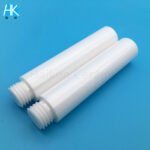
Mirror Polish Custom Zirconia Ceramic Rod
Material:Zirconia Ceramics
Describe:Mirror Polish Custom Zirconia Ceramic Rod ,also used in food filling as metering pump components. These precision-engineered units offer precise fluid control with high hardness and strength, ensuring stable performance and longevity under demanding conditions of pressure and flow.

